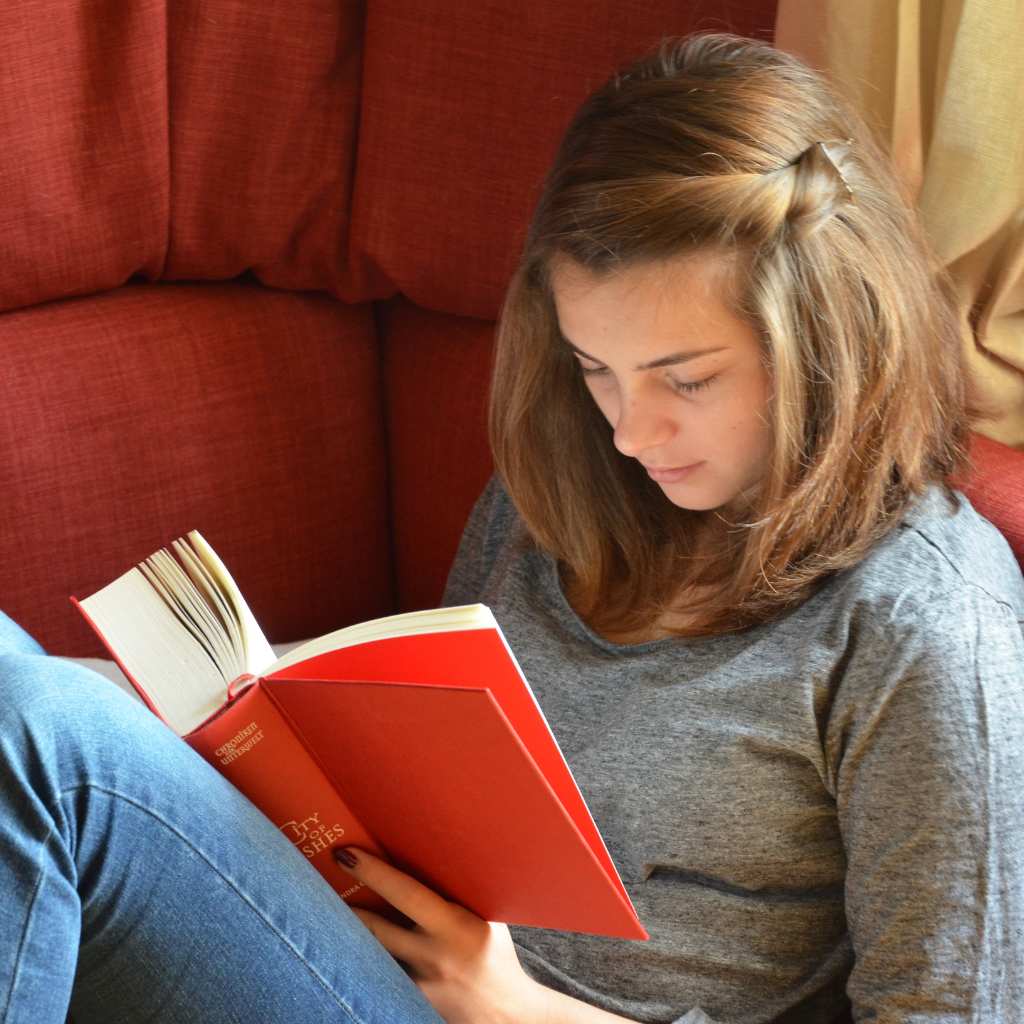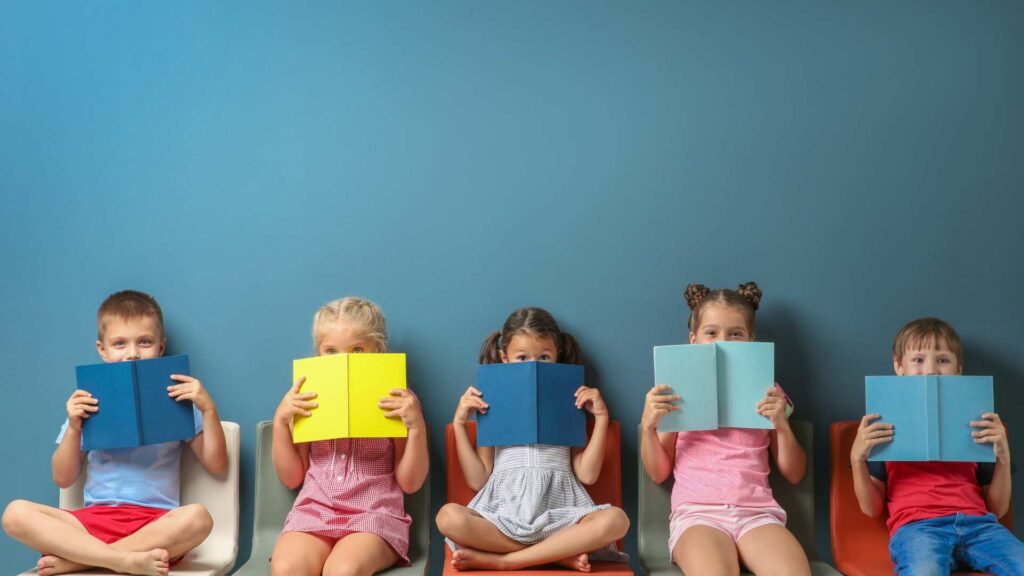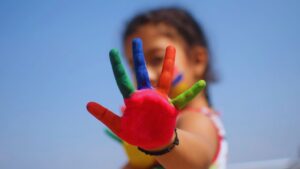Table of Contents
What is the best book to read to understand autism?
There’s something heartwarming about a child seeing themselves in the pages of a book, something affirming, comforting, and even life-changing. For families navigating autism, finding those moments of connection can feel especially powerful. Books for children with autism are more than just bedtime stories or educational resources; they’re bridges to understanding, tools for self-discovery, and pathways to emotional growth.
Across bookshelves and library aisles, a growing collection of books for children with autism has emerged—thoughtfully written to reflect real experiences and emotional depth. Many of these stories are crafted by neurodivergent authors or families with firsthand knowledge of autism, offering genuine insight into everyday moments.
In this blog by ABA Centers of Virginia, we’ll explore why these books are more than a niche market or educational tool. We’ll unpack how they influence self-discovery, emotional regulation, and empathy.
Why Books Matter for Autistic Children
For neurodiverse kids and teens who often face communication challenges or feel out of sync with social norms, books become safe spaces where they can explore feelings, understand others, and build vocabulary for their internal world. Books for autistic children often present characters who think differently, who get overwhelmed by bright lights or loud noises, or who find peace in routines or deep interests. For a child who feels “different” without knowing why, reading about a similar experience can be a lifeline.
These stories make their experiences visible and shed light on neurodiversity. Just as important, they help neurotypical peers build empathy. When used in classrooms or read aloud at home, books for children with autism serve as conversation starters that open doors to kindness, understanding, and inclusion.
Books for Children with Autism: A Thoughtful Reading List
These stories not only open the door to self-discovery but also help children feel understood and represented. ABA Centers of Virginia has gathered a selection of titles that speak to the neurodivergent experience in honest, hopeful, and engaging ways. If you’re looking for books for children with autism, these stories are meaningful tools for growth, comfort, and self-expression.
1. The World Beyond My Shadow by Daniela Schreiter
This autobiographical graphic novel gives readers a glimpse into what it’s like to live with autism. Her humorous and expressive style helps older children and teens better understand neurodivergent perspectives through relatable, visual storytelling.
2. Planet Ripple by Nicholas Anderson
This graphic novel is set in a post-apocalyptic world and follows Minnow, a disabled and neurodivergent girl navigating survival and identity. The author, who is also on the spectrum, crafts a rich narrative that humanizes the neurodivergent experience through empathy, complexity, and powerful character development.
3. Invisible Differences by Julie Dachez and Mademoiselle Caroline
This graphic memoir shares the story of Marguerite, a woman with undiagnosed Asperger’s, navigating sensory overload, isolation, and eventual self-discovery. A transformative read for teens and older children, this book offers a heartfelt look at how diagnosis can shift one’s worldview and unlock empowerment.
4. Go-Man: Champion of Earth by Hamish Steele
In this adventurous and emotional story, Tobi, a young boy with autism, transforms into the superhero Go-Man. The tale cleverly mirrors the internal struggles of masking and identity that many neurodivergent kids experience, showing that being true to yourself is its kind of superpower.
5. It’s Ok to Be Me by Lauren Osborne
This book reflects the author’s own life as a neurodiverse person through honest storytelling and authentic illustrations. Written for readers ages eight and up, it addresses how society sees autism and encourages understanding, acceptance, and pride in neurodivergent identity.
6. Frankie’s World: A Graphic Novel by Aoife Dooley
This engaging and relatable graphic novel offers a thoughtful exploration of what it means to feel different. Frankie faces challenges in fitting in with her classmates, dealing with distractions, and experiencing being picked up due to not having a dad. To navigate her feelings and make sense of her surroundings, she creatively documents her everyday experiences in a comic journal. And when she sets off to find her father, she discovers more about who she is. Full of humor, honesty, and heartfelt moments, this book celebrates neurodiversity and speaks to anyone who’s ever felt like an outsider.
7. Frankie’s World #2: Finding My Voice
This sequel shows a touching and lively story about the challenges of carving out your own identity in a world that often doesn’t understand you. During Frankie’s first year of high school, she navigates a landscape filled with strict rules and judgmental glances that make her feel out of place. She uses her voice to cope with the chaos around her, though it isn’t always encouraged. When a Battle of the Bands competition presents itself, Frankie sees a chance to showcase her true self, but she quickly realizes she needs a band—and friends—to do it. This story beautifully explores themes of friendship, self-acceptance, and the importance of being true to oneself, all while highlighting the experience of neurodiversity.
8. Ink Girls by Marieke Nijkamp
This beautifully illustrated story brings together two girls from different worlds who fight censorship and challenge societal norms. While not explicitly about autism, it resonates with neurodivergent readers through its focus on inclusion, courage, and using your voice to make change.
9. Speak Up by Rebecca Burgess
Mia, a 12-year-old girl with autism, finds her voice through songwriting and her friendship with Charlie. This tender graphic novel explores themes of self-expression, performance anxiety, and confidence—all deeply relatable for neurodiverse readers.
10. Drawn to Change the World by Emma Reynolds
This collection of illustrated stories highlights 16 young climate activists making a difference around the globe. Although not solely focused on autism, it’s an excellent choice for children with autism who are passionate about social justice or environmental science.
Fostering Lifelong Learning and Identity
In the end, reading isn’t just about literacy. For individuals with ASD, it’s a window into themselves and the world around them.
Books can teach boundaries, boost emotional intelligence, spark curiosity, and—perhaps most importantly—instill a sense of belongingand self-discovery. As children grow, stories help shape their understanding of their identity.

They learn that having autism doesn’t define all of who they are, but it’s a meaningful part of how they experience life. And when books reflect that truth—when books for autistic children speak authentically—they offer something more than knowledge. They offer comfort, confidence, and connection.
Our Commitment at ABA Centers of Virginia
At ABA Centers of Virginia, we support each child’s journey with personalized ABA therapy plans that incorporate their passions and needs. If books are a meaningful part of a child’s world, we bring that into our therapy sessions because we know that when therapy aligns with identity, learning is stronger and progress is deeper.
Our experienced team works with families across Arlington, Washington D.C., and more areas of Virginia to help children on the spectrum develop communication, social, and self-help skills that improve daily life. Whether it’s through imaginative play, structured reading time, or interactive storytelling, we’re here to help each child reach their full potential.
Discover more about our autism care services by calling (855) 957-1892 or scheduling a free consultation here. At ABA Centers of Virginia, we know that every child has a story, and we’re here to help them write it!








